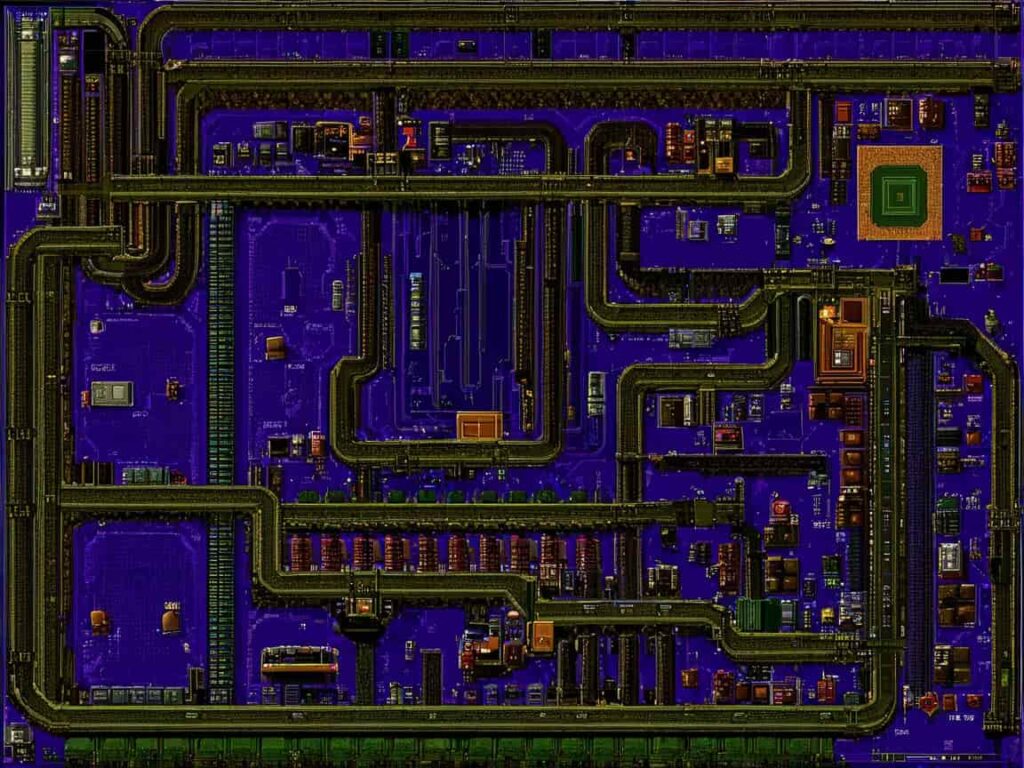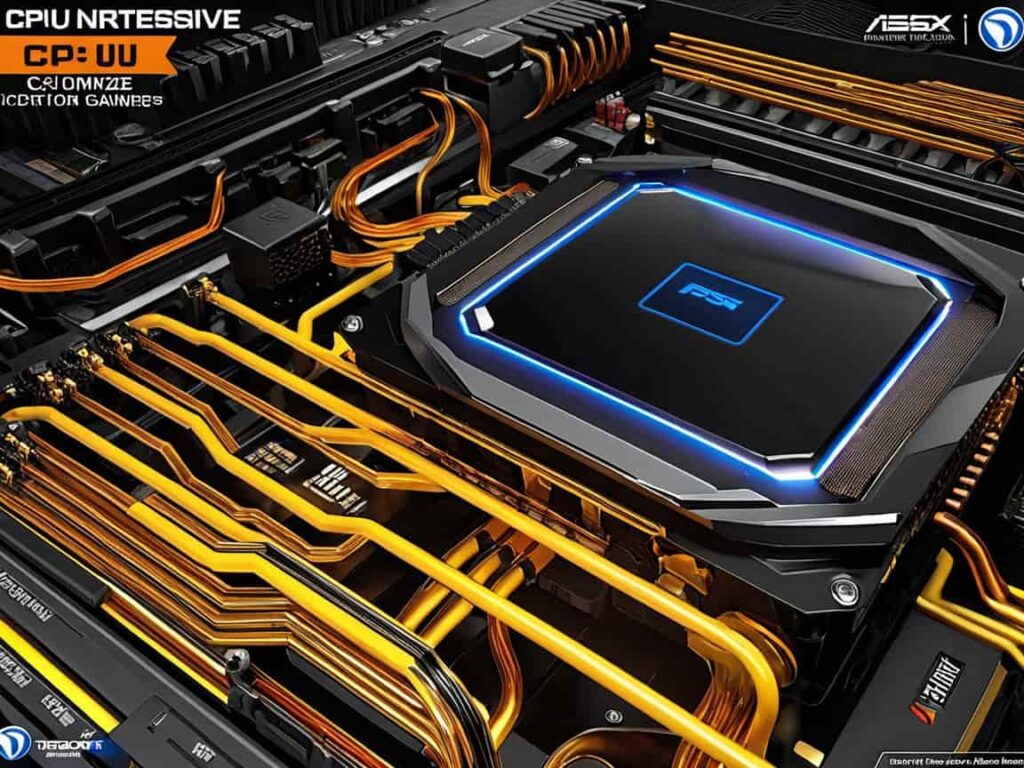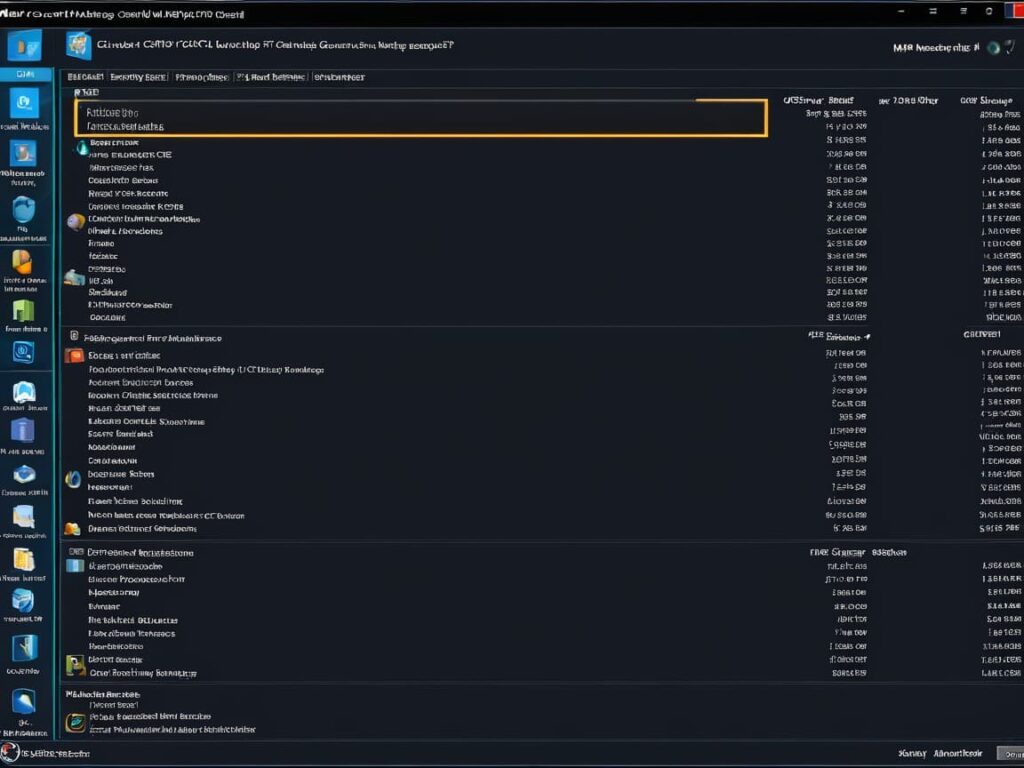I recently tried some CPU-intensive games, and my processor was pushed to its limits. Titles like Cyberpunk 2077 and Total War: Warhammer III really tested my PC’s performance. If you love high-detail graphics and massive simulations, these games are worth a shot—but make sure your setup can handle the load.
CPU-intensive games demand powerful processors to handle complex graphics, detailed physics, and large-scale simulations. Popular titles like Cyberpunk 2077 and Total War: Warhammer III can push your CPU to its limits.
This article will discuss”games that are cpu intensive”
What are CPU-intensive games?

CPU-intensive games are games that need a strong processor to run smoothly. They use the CPU to handle things like AI, physics, and large in-game worlds. Popular examples include Cyberpunk 2077 and Microsoft Flight Simulator. If your CPU is not powerful, these games might lag or run poorly.
Read More: Can I Use 70 Isopropyl Alcohol To Clean Cpu – Here’s What
Do CPU-intensive games require a high-end GPU too?
Depends on the Game:
Depends on the Game” means performance needs can change based on the type of game. Some games need more CPU for AI and physics, while others need GPU power for graphics. It’s important to know your game’s requirements.
Balanced Setup:
A balanced setup means having a computer where the CPU, GPU, and RAM work well together. This ensures smooth performance for gaming, work, or daily tasks without any part being too weak or too powerful.
High-End Games:
High-end games are designed for powerful computers with advanced CPUs and GPUs. They have realistic graphics, detailed environments, and smooth performance. Popular examples include Cyberpunk 2077 and Red Dead Redemption 2, perfect for gamers who enjoy cutting-edge experiences.
Graphics Settings Matter:
Graphics settings affect how your game looks and performs. Lower settings can improve speed on slower PCs, while higher settings give better visuals on powerful setups. Adjust them based on your computer’s ability for smooth gameplay.
Multiplayer Games:
Multiplayer games allow players to compete or cooperate with others online. Popular games like Fortnite and Call of Duty bring people together to play in teams or against each other. They require strong internet connections and teamwork to succeed.
How can I tell if a game is CPU or GPU intensive?
- AI & Simulations: Games with complex AI or large simulations (e.g., Total War) are usually CPU-intensive.
- Graphics Quality: Games focusing on high-quality textures and visuals (e.g., Cyberpunk 2077) are GPU-intensive.
- Open-World Games: If the game has a large, dynamic world, it’s often CPU-intensive due to the processing required.
- Frame Rate Drop: A sudden drop in frame rate due to complex graphics often indicates GPU stress. If performance drops during AI-heavy sections, it’s CPU-related.
- Task Management: If the game runs well with a weaker GPU but struggles with processing tasks like physics, it’s likely CPU-intensive.
Can I play CPU-intensive games on a budget PC?
Lower Graphics Settings:
Lowering graphics settings in games can improve performance, especially on PCs with weaker hardware. Reducing details like shadows, textures, and effects can help the game run smoother, reduce lag, and provide a better overall experience without needing high-end specs.
Close Background Applications:
Closing background applications helps your PC run faster by freeing up CPU and memory. When playing CPU-intensive games, shutting down unnecessary programs reduces lag and improves performance. This allows your computer to focus on the game without distractions.
Use Performance Mode:
Using Performance Mode helps your PC run games smoothly by prioritizing performance over other tasks. It reduces lag and improves frame rates, especially in CPU-intensive games. This mode can make your gaming experience faster and more stable.
Upgrade Cooling:
Upgrading your cooling system helps keep your PC cool during heavy tasks, like gaming or video editing. A better cooler can improve performance and prevent overheating, making your system run faster and last longer. It’s essential for high-performance PCs.
Choose Lighter Games:
If your PC isn’t very powerful, it’s better to choose lighter games. These games don’t require much CPU power and still offer a fun experience. Examples include Stardew Valley, Among Us, and Rocket League—they’re easy on your system.
Why do some games require more CPU power?
Some games need more CPU power because they have complex tasks like managing AI, large worlds, and real-time physics. These games require the CPU to process many actions at once, making it work harder. Games with detailed environments or large maps often use more CPU to handle everything smoothly without slowdowns or crashes.
What are the most CPU-intensive games?
Some of the most CPU-intensive games include Cyberpunk 2077, Microsoft Flight Simulator, Total War: Warhammer III, and Cities: Skylines. These games require a lot of processing power due to their complex AI, large maps, and detailed simulations. Players may need powerful CPUs to run them smoothly without lag or performance issues.
How do I optimize my PC for CPU-heavy games?

To optimize your PC for CPU-heavy games, make sure to close any unnecessary programs running in the background. Keep your CPU cool with proper cooling solutions, and update your drivers regularly. You can also adjust game settings to lower the CPU load. Finally, consider overclocking your CPU for better performance, but make sure it’s safe for your system.
Read More: Adoptopenjdk 11.24 8 Pegging Cpu Due To Printstream
Are open-world games more CPU intensive?
Yes, open-world games are often more CPU intensive because they need to process a lot of things at once, like AI, physics, and real-time events. The game world is large, and many actions happen simultaneously, which requires a powerful CPU to keep everything running smoothly. This can cause high CPU usage, especially in detailed, large maps.
Does overclocking help with CPU-heavy games?
Improved Performance:
Improved performance means making your PC or game run faster and smoother. You can do this by upgrading parts like the CPU, GPU, or adding more RAM. Simple steps, like closing unused programs, also help improve performance.
Better Frame Rates:
Better frame rates mean smoother gameplay with fewer stutters or lag. Higher frame rates make the game look better and run faster. To improve them, upgrade your CPU, GPU, or adjust game settings for better performance.
Faster Processing:
Faster processing means your computer or device can handle tasks more quickly. This is important for running demanding software, playing games, or multitasking. A faster processor helps improve performance, making everything run smoothly without delays.
More Headroom:
More Headroom refers to having extra space or resources, like when your CPU or PC has more power to handle heavy tasks. It helps improve performance in demanding games or software, making things run smoothly.
Increased Heat:
Increased heat occurs when your CPU or GPU works harder, especially during gaming or heavy tasks. It can cause overheating, leading to slower performance or damage. Proper cooling systems help manage heat and keep your PC safe.
Which game genres are typically CPU-intensive?
CPU-intensive games are usually found in genres like strategy, simulation, and open-world games. These games require a lot of processing power for managing complex AI, large maps, and detailed physics. Examples include games like Total War, Microsoft Flight Simulator, and The Sims, which rely heavily on the CPU to run smoothly.
Do multiplayer games use more CPU than single-player games?
Yes, multiplayer games usually use more CPU than single-player games. This is because they need to manage connections between players, track their actions, and update the game world in real-time. The game has to process more data and handle network communication, which can put extra pressure on your CPU compared to single-player games that only focus on one player’s experience.
How can I monitor my CPU usage during gaming?

To monitor your CPU usage while gaming, you can use tools like Task Manager or MSI Afterburner. These programs show you how much of your CPU is being used. Simply open them before starting a game, and keep an eye on the CPU percentage. This helps you see if your CPU is being overworked or running smoothly during gameplay.
Read More: Will My Cpu Bottleneck My Gpu – Find Out In Seconds!
What happens if my CPU can’t handle a game?
If your CPU can’t handle a game, you might experience slow performance, lag, or freezing. The game may stutter, crash, or not run smoothly. This happens because the CPU is not fast enough to process the game’s tasks. Lowering game settings or upgrading your CPU can help improve performance and avoid these issues.
FAQs:
1. What are CPU-intensive games?
CPU-intensive games require a lot of processing power to handle complex tasks like AI, physics, and simulations. These games push your processor to its limits.
2. Why do some games require more CPU power?
Games with complex AI, large maps, and detailed physics need more CPU power to process everything smoothly. These tasks demand a fast processor.
3. Can my low-end PC run CPU-intensive games?
You can play CPU-intensive games on a low-end PC, but you may need to lower the graphics settings to avoid lag and poor performance.
4. How do I improve my CPU performance for gaming?
To improve CPU performance, close unnecessary programs, keep your drivers up to date, and ensure your CPU has proper cooling during gameplay.
5. What happens if my CPU isn’t powerful enough for a game?
If your CPU can’t handle a game, it may cause slowdowns, stuttering, or crashes. The game might not run properly, and your PC will struggle to process the game’s tasks.
6. Do online multiplayer games use more CPU than single-player games?
Yes, multiplayer games often use more CPU power because they require constant communication with servers and managing multiple players at once.
Conclusion:
CPU-intensive games demand powerful processors to handle complex tasks such as AI, large environments, and detailed physics. If your CPU isn’t up to the challenge, you may experience slow performance, lag, or crashes. Optimizing your settings, upgrading your CPU, or improving cooling can help improve performance.
For the best gaming experience, ensure your system is capable of handling these demanding games.
